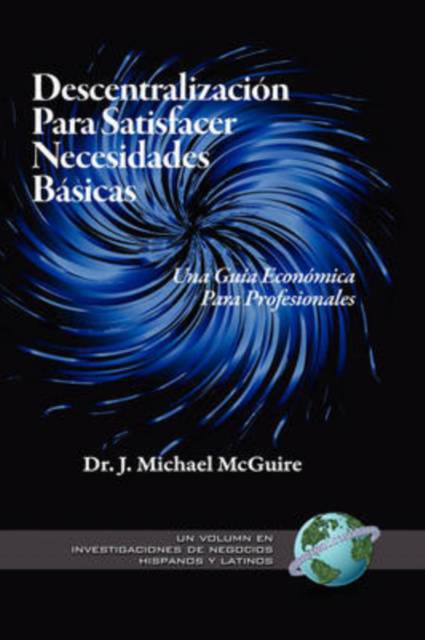
- Afhalen na 1 uur in een winkel met voorraad
- Gratis thuislevering in België vanaf € 30
- Ruim aanbod met 7 miljoen producten
- Afhalen na 1 uur in een winkel met voorraad
- Gratis thuislevering in België vanaf € 30
- Ruim aanbod met 7 miljoen producten
Descentralizacion Para Satisfacer Necesidades Basicas
Una Guia Economica Para Profesionales (Hc)
J Michael McGuireOmschrijving
Approximately 25% of Latin Americans live on less than $2 a day, and Latin America is the most unequal region of the world. Poverty and inequality cause suffering and slow development.
The solution must include generating an inclusive development process through satisfying the basic needs of the poor that enhance their productivity, that enable them to contribute to the development process, and that enables them to earn the income necessary to live a full life.
Decentralization of taxing and spending from the central government to lower levels of government can help to satisfy basic needs of the poor and create an inclusive development process. However, decentralization is a stepby-step process that must implemented by taking into account real-world circumstances such as a lack of administrative ability in local government, and by formulating policy accordingly.
The book derives economic principles for implementing the process of decentralization, and it presents cases that illustrate the principles at work. It is an economic guide for policymakers and practitioners.
Specificaties
Betrokkenen
- Auteur(s):
- Uitgeverij:
Inhoud
- Aantal bladzijden:
- 216
- Taal:
- Engels
- Reeks:
Eigenschappen
- Productcode (EAN):
- 9781607520092
- Verschijningsdatum:
- 17/02/2009
- Uitvoering:
- Hardcover
- Formaat:
- Genaaid
- Afmetingen:
- 156 mm x 234 mm
- Gewicht:
- 480 g

Alleen bij Standaard Boekhandel
Beoordelingen
We publiceren alleen reviews die voldoen aan de voorwaarden voor reviews. Bekijk onze voorwaarden voor reviews.









